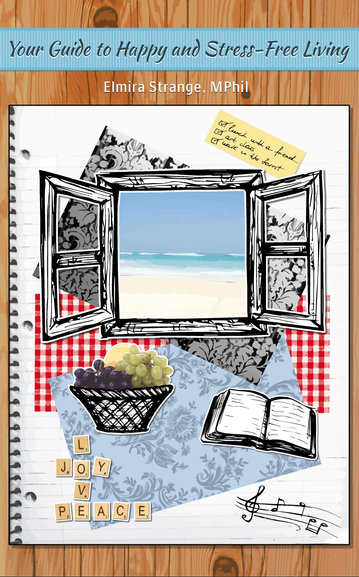Why do we fall in love
Falling in love consists merely in uncorking the imagination and bottling the common-sense.
(A joke)
“Passionate love usually begins as an instant, overwhelming, surging, all-consuming positive reaction to another person – a reaction that feels as if it’s beyond your control, like an unpredictable accident”. (1)
by Elia Strange

‘Falling in love’ is a very intense feeling. When you ‘fall in love’, you:
1) think of your lover constantly,
2) want to spend as much time as possible with him/her,
3) often are unrealistic about him/her!
4) The lover becomes the focus of your life whereas most of your friends become temporarily forgotten!
5) ‘Falling in love’ means that you have a very little control over the situation!
6) Falling in love’ and ‘falling in friendship’ are very similar in their nature. We choose our partners in the same way as we choose our friends.
_____________________________________________________________
Do you know that the more you think about love, the more likely you are to fall in love?
Also, if you believe that love at first sight is possible, then you have a high chance it will happen to you!
“Passionate love" is a mixture of sexual attraction, physiological arousal, a desire to be physically close, and an intense need to be loved as much as you are loved, and all this is accompanied by a recurring fear that something might happen to end the relationship”.
I am sorry to bring the news to you, but when you are in love, you often become disillusioned!
When we are in love, we tend to form ideal images of our lovers, we believe that ‘we are meant for each other’, we fantasise that our needs will be met, and we mix our sexual fantasies with the reality of our new mate.
In other words, we have a ‘positive illusion’ about our new relationship.
Why do we ‘fall in love’?
There are two main reasons for that:
1) Biological processes (evolution and the need to pro-create)
2) Social processes (for young people – to experience the feelings of love, and for the community – the need to believe in love)
People become attracted to each other when they live, work, socialise in a close proximity to each other. If they have many similarities, they might become good friends or lovers. If two people feel ‘passion’ towards each other, then they can ‘fall in love’.
In most long-lasting relationships the partners are of a very similar level of attractiveness to each other. So in other words, if you choose someone much worse or much better looking than yourself, the chances of you both staying together long-term are much lower.
Who we ‘fall in love’ with usually involves some psychological (sub-conscious) calculations in our mind. Who we ‘fall in love’ with and who we choose as our partners involve very similar processes.
The only difference between ‘falling in love’ and ‘choosing our mate’ is the strong biological process, when our hormones go into overdrive, after our brains have done all the ‘calculations’ about the possible suitability of our new-found love/partner.
So is finding a new love a romantic thing then?
So, overall we tend to ‘fall in love’ with people who are:
a) similar to us on the 'attractiveness' level
b) would be 'approved' by your family and friends
c) remind us someone who cared for us in the past (e.g. a good friend or the parent)
d) have similar interests
e) have similar views (e.g. political)
f) live or work in a close proximity to us
Therefore, how much of your ‘falling in love’ is actual ‘falling’? And how much of it is your ‘subconscious choosing’? You decide...
Other articles you might be interested in:
How do we choose friends and partners
Why do I need to be in a relationship to be happy?
Why some people are more attractive than others?
What is social rejection?
'Why do we fall in love' REFERENCES:
Averill, J.R. & Boothroyd, P. (1977). On falling in love in conformance with the romantic ideal. Motivation and Emotion, 1, 235-247.(5)
Baron, R.A. & Byrne, D. (2004). Social Psychology. 10th ed. New York: Pearson Education.(1)
Berscheid, E. & Walster, E.H. (1978). Interpersonal attraction (2nd ed.). Reading, MA: Addison-Wesley.(7)
Knee, C.R. (1998). Implicit theories of relationships: Assessment and prediction of romantic relationship initiation, coping, and longetivity. Journal of Personality and Social Psychology, 74, 360-370.(6)
Milardo, R.M., Johnson, M.P., & Huston, T.L. (1983). Developing close relationships: Changing patterns of interaction between pair members and social networks. Journal of Personality and Social Psychology, 44, 964-976.(2)
Murstein, B.I. (1980). Love at first sight: A myth. Medical Aspects of Human Sexuality, 14 (34), 39-41.(4)
Tesser, A. & Paulhus, D.L. (1976). Toward a casual model of love. Journal of Personality and Social Psychology, 34, 1095-1105.(3)
Sign
up below to receive my free email newsletter with new fresh articles to
help you to become healthier and happier.
It's sent about once a month.
No spam. No
sharing of your email address. Easily unsubscribe at any time.
Best Articles:
10 tips to strengthen your marriage
Best ways to manage your stress
How to get what you want (the Law of Attraction)
Why do I need to eat healthy?
Signs and stages of stress
13 Facts about sugar addiction
7 Reasons for our unhappiness
Why people commit suicide
How to get a good night sleep
Try these Tests and Quizzes:
Is it time to take stress seriously?
How well do you know yourself?
Can you talk to teenagers?
Do you have a time to recreate?
Can you cope with stress well?
The Latest Articles:
Green Smoothie Recipe
Stress in Parents and Carers of disabled children (VIDEO)
Did you find your dream job yet?
Is an eye mask good for sleeping?
How to look and appear confident
Why am I tired all the time?
Exercise tips: 8 easy ideas for losing weight and become fitter
15 Sure signs that you are stressed
Are memory foam mattresses worth it?
How stress affects your health: What stress is doing to your body
How to get what you want (the Law of Attraction)
How to be more patient
How to deal with SAD: Autumn depression
How to stop negative thinking
How bad is your memory? (Fun Quiz)
What is love - in children words
How to make people like you?
Why do I forget things?
10 Tips to strengthen your marriage
Would you move abroad?
Are holidays worth it?



